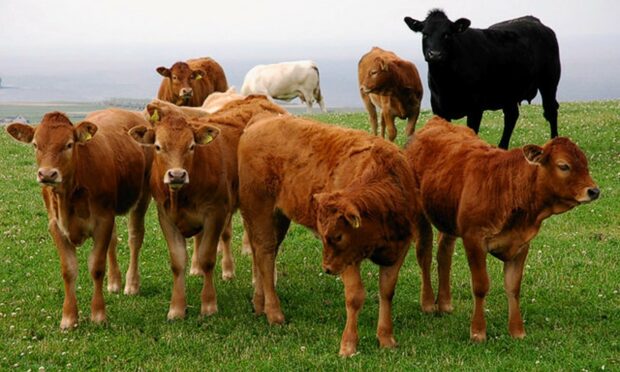Brexit will signal the start of a new era that could lead to opportunities for the UK livestock industry, according to union leaders who met in London.
In a statement following their discussions NFU livestock chiefs from both sides of the border insisted they wanted to be involved in producing a template for a profitable sector, and pledged to use Brexit as an opportunity to target future support on active farmers.
The leaders also said they saw the exit from the EU as a chance to introduce more sensible regulation and proportionate policing for the industry.
NFU Scotland’s (NFUS) livestock committee chairman, Charlie Adam insisted it was vital the UK farm unions worked closely throughout the Brexit process.
“We share many challenges and all want the best out of the situation for farmers,” he added.
“On trade, our livestock farmers, particularly sheep, need access to European markets to support our production and price while the quality of our beef merits trade arrangements that recognise existing and potential markets.”
The NFU in England agreed that access to European markets for beef and lamb was important but also emphasised the need to secure access to new markets around the world.
NFU livestock chairman Charles Sercombe said: “Agreements that allow access to the UK market must take into account the sensitive status of UK produced beef and lamb in future free trade or WTO discussions.”
Mr Sercombe added that access to non-UK labour was a key issue for the meat industry as well as other agricultural sectors.
“We are acutely aware that the meat processing sector is reliant on a secure labour supply, and without it we could see costs rising in the supply chain and which would have a knock on effect on our ability to compete in a world market,” he said.
“Regulatory burden remains a thorny issue for many livestock producers. We recognise that any significant change could impact on our ability to trade within the single market. Therefore, our challenge to government is to ensure regulation is proportionate, is not ‘gold plated’ but encourages compliance.
“We want an agricultural policy that helps deliver long term food security, stability and confidence for the livestock sector that reflects geographical and devolved Government differences.”
The union spokesmen from Scotland, England, Wales and Ulster were joined at the meeting by representatives of the meat levy bodies from all four countries.
